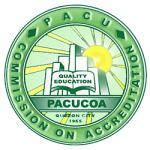Sociology has been a forefront in examining the organization and practices of professional life. Sociologist Julia Evetts, in her comprehensive study on sociological research on professional groups, observed that the history of development in the said field revolves around three concepts: professional. professionalism, and professionalization (2011). The concept of profession is primarily concerned with the nature of the profession itself. It acknowledges the prominence of the profession’s knowledge and its sought of finding traits that makes a profession distinct from other occupations (Rafael 2014). Therefore we are to say the same on sociology: that is a profession which can be identified and applied to various work occupations in the society.╠²
The discipline of sociology is diverse and not well-defined. Because of this flexibility, Sociology can be incorporated to almost every discipline, from social sciences to health, communication to sports etc. Sociological practice encompassess wide range of ÔÇ£expertiseÔÇØ, which include social research, policy analysis, social development work, social mobilization, and policy research among the few (Rafael 2014). This generality of expertise from sociologists leads to situations where sociology graduates are expected by educational institutions to teach non-sociology subjects like logic, philosophy, history and economics (Rafael 2014). Meanwhile, sociology has established its ÔÇ£marketÔÇØ on academic research, and that the discipline developed its own self-inferential jargon as seen from the works published by Philippine Sociological Review╠² (Rafael 2014).╠²
On that note, Randolf David has described professionalization as the disciplineÔÇÖs promotion of ÔÇ£a particular way of talking, a jargon, a scholasticism,ÔÇØ and the insistence on relation sociological research outputs to an imagined universal thread of sociological thought (David 2001), which further supports the idea that sociology is indeed a profession because of the skills and knowledge required to be able to analyze, interpret, and understand cultures and establish norms in both the society and institution.╠²
However, in the Philippine setting, sociology remains to be an academic discipline as it currently does not have a professional code of conduct for it to be formalized. Erwin Rafael has compared sociology, an academic discipline, with accountancy which is more practice-based and has concluded that sociology-centered norms and values are not workable profession-wise (Rafael 2014). Nonetheless, this does not stop sociology from being a profession as it continues to contribute to the production, interpretation, understanding, and application of knowledge to solve societyÔÇÖs conflicts and issues.
ÔÇï
Filipino:
Kung anong gagawin pagkatapos ng pagkuha ng diploma sa sosyolohiya ay tanong ng marami. Lahat ay naghahanap ng katiyakan na ang diplomang nakuha ay makapagbibigay ng magandang trabaho at maayos na pangita. Ang lugar ng sosyolohiya bilang isang propesyon ay palaging kinukwestiyon, halimabwa noong 2012 National Conference ng Philippine Sociological Society, nagtipon ang mga mananaliksik para pag-usapan at bigyang solusyon ang problema patungkol sa ÔÇ£hanggananÔÇØ ng propesyon ng sosyolohiya na naka-angkla sa tema ng komprensya: ÔÇ£mga sosyolohista bilang mga propesyonalÔÇØ (Rafael 2014). Samantala, ayon kay Randy David, ang sosyolohiya ay ganap nang gawaing propesyonal (Rafael 2014).
Ang sosyolohiya ang palaging nangunguna pagdating sa pagkilatis ng mga organisasyon at praktika ng propesyonal na buhay. Ayon kay Julia Evetts sa kanyang pag-aaral patungkol sa sosyolohikal na pananaliksik sa mga grupong propesyonal, naobserbahan niya sa kasaysayan ng pagusbong ng naturang disiplina ang tatlong konsepto: propsesyonal, pagka-propesyonal, at gawain propesyonal (2011). Ang konsepto ng propesyon ay pangunahing nakatuon sa katangian ng mismong propesyon. Kinikilala nito ang kaalaman ng disiplina at ang paghanap nito ng mga indibidwal na katangian na naghihiwalay rito sa ibang disiplina (Rafael 2014). Kung gayon ay makikita natin na katulad nito, ang sosyolohiya ay isang propesyon kung saan maaring maiangkla sa ibaÔÇÖt ibang trabaho sa lipunan.
Ang disiplina ng sosyolohiya ay malawak. Dahil sa kakayahan nito angkop sa lahat, ang sosyolohiya ay maaaring isama sa ibang disiplina mula agham panlipunan at medisina, komunikasyon at palaro. Ang praktika ng sosyolohiya ay maraming maituturing na larangan ng kadalubhasaan, kabilang na rito ang panlipunan pananaliksik at pagtatasa ng patakaran (Rafael 2014). Ang lawak ng kadalubhasaan na ito ng sosyolohiya ay madalas na nagiging dahilan ng generalisasyon na ang mga sosyolohista ay inaasahang ng mga akademikong institusyon na magturo ng mga asignaturang walang kinalaman sa disiplina. Samantala, naitatag ng sosyolohiya ang sarili nitong ÔÇ£merkadoÔÇØ sa pananaliksik na makikita natin sa mga gawang inilathala ng mga sosyolohista sa Philippine Sociological Society (Rafael 2014).
Inilarawan naman ni Randolf David ang professionalization bilang promosyon ng disiplina ng ÔÇ£partikular na pamamaraan ng pagsasalita, jargon, iskolarismo,ÔÇØ at ang paggigiit sa kaugnayan ng sosyolohikang pananaliksik na output sa ipinalalagay na unibersal na sosyolohikang pag-iisip (David 2001) na higit pang sumusuporta sa ideyang ang sosyolohiya ay isang tunay na propesyon dahil sa kasanayan at kaalamang kailangan upang masuri, magbigay kahulugan, at intindihin ang mga kultura at magtatag ng mga pamantayan sa lipunan at sa institusyon.
Ngunit, ang sosyolohiya ay nananatiling isang pang-akademikong disiplina sa Pilipinas sa kadahilanang wala itong professional code of conduct upang ito ay ganap na gawing pormal. Ikinumpara ni Erwin Rafael ang sosyolohiya na isang pang-akademikong disiplina sa accountancy na batay sa kasanayan at naghinuha na ang mga pamantayan at prinsipyong nakasentro sa sosyolohiya ay hindi praktikal para sa isang propesyon (Rafael 2014). Gayunpaman, hindi ito makapipigil sa sosyolohiya sa pagiging isang propesyon sapagkat patuloy ito tumutulong sa produksyon, interpretasyon, pag-unawa, at aplikasyon ng kaalaman upang malutas ang mga salungatan at isyu ng lipunan.
References
Batan, Clarence and Francis Lyn Samaco. 2013. Philippine Sociological Review 61(1):123ÔÇô146. Retrieved April 3, 2020.ÔÇï
David, Randolf. 2001.╠² Quezon City: University of the Philippines Press.
Erwin, Rafael. 2014. Pp. 213-236 in Erwin, Rafael. Philippine Sociological Review. Philippine Sociological Society.ÔÇï
. 2020. Retrieved.
Palafox, Q., 2012. . [online] National Historical Commission of the Philippines. Retrieved.
Steele, Stephen and Jammie Price. 2008. ÔÇ£Making a Difference with Sociology.ÔÇØ Pp. 125ÔÇô32 in╠²Applied Sociology: Terms, Topics, and tasks.╠²Thomson Wadsworth.
░─├┼┴¨║¤▓╩┐¬¢▒═°. 2018.╠²Student Handbook.╠²Revised.
░─├┼┴¨║¤▓╩┐¬¢▒═°. (2016). Bachelor of Arts in Sociology (4 years). Retrieved from ░─├┼┴¨║¤▓╩┐¬¢▒═°:╠²
ÔÇïWeightman, George H. 1987. International Review of Modern Sociology 17(1):35ÔÇô62. Retrieved April 3, 2020.

















































